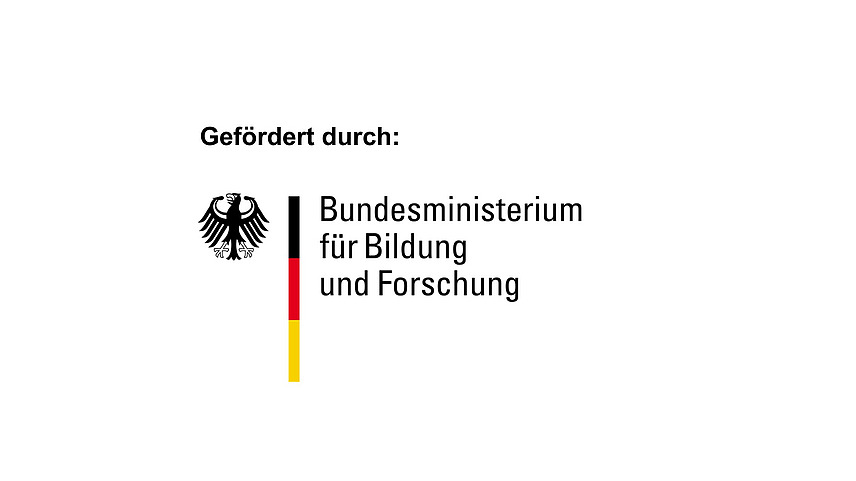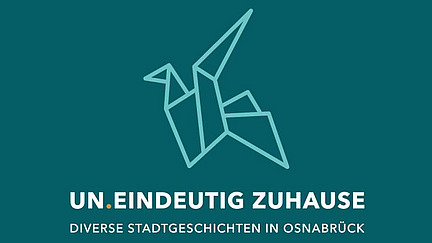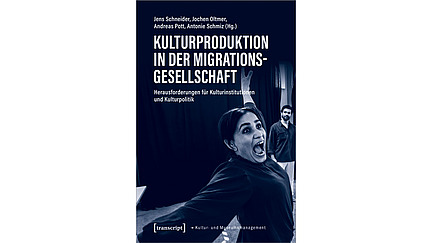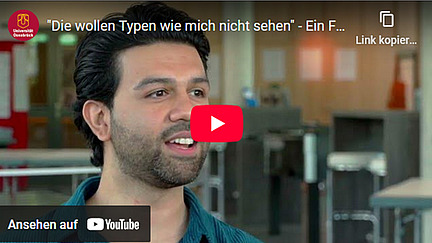Cultural Production in the Migration Society (KultMIX)
Funding: Federal Ministry of Education and Research
Duration: 1.4.2018 until 31.3.2022
Project management: Prof. Dr. Andreas Pott, Prof. Dr. Jochen Oltmer and Prof. Dr. Antonie Schmiz
Coordination: Dr. Jens Schneider
Project team members: Lars Bädeker, Rikke Gram and Joanna Jurkiewicz
With the official start on April 1, 2018, a team from IMIS is investigating the effects of increasing diversity and immigration on established cultural institutions such as theaters and museums, as well as cultural policy/cultural administration and the independent cultural and art scene. The project is part of the "Migration and Social Change" program of the Federal Ministry of Education and Research (BMBF).
Migration has been changing the country, its institutions and its debates for a long time. However, the perception and reflection of this change has rarely been as intense as since the refugee movements to Germany in the late summer of 2015. As if through a magnifying glass, it became clear that the migration-induced social change also means a crisis of self-definition: the experience and political commitment to being a country of immigration is contrasted with a discourse in which even the grandchildren of immigrants are still considered "people with a migration background" and are thus simultaneously constructed as non-Germans. However, the implied image of an ethnically and culturally defined German "society of origin" that is understood as homogeneous and to which newcomers should adapt has proven to be unsuitable for sustainable and consensual self-definitions - not least because demographic developments and the diversification of the population associated with migration processes have long since overtaken them.
Culture is the central pivotal point in this debate. Cultural arguments characterize observations of integration, they dominate both various scenarios of threats to one's own as well as alternative discourses on diversity. The ongoing discussions about norms, values and social cohesion also refer to the concept of culture.
The planned project therefore focuses on "culture" and those institutions whose central tasks include the production of culture. The two guiding research questions are:
- How do national and local cultural institutions in Germany process and deal with the experiences of the migration society? What contribution do cultural policy, theaters, museums, municipal cultural institutions, programs and work make to the development and testing of concepts that help to overcome the "crisis of self-definition"?
- In what way do migration and its long-term effects also change the cultural institutions themselves, i.e. their structures, actors and practices? What role do elements of intercultural openness play, for example, in staffing and programmatic orientation?
The project works with the instrument of real laboratories. A continuous exchange with individual practice partners as well as a close interlinking of scientific surveys and analyses with the practice of selected cultural institutions make the project possible. Just as the practice partners are involved in the development of new scientific problems, scientifically based interventions are to be made in the practice of cultural work in the migration society, which and their observable consequences are then in turn empirically monitored in order to generate new findings.
This setting, as well as the practice of cultural institutions operating under specific conditions, means that real-world laboratories should always be conducted in specific local contexts. In this way, local implementation options and specific actors can be examined as examples, even for general questions.
Four real-world laboratories are planned at locations that represent different regions and scales of observation. At the same time, they will enable the four main topics to be dealt with in a prototypical manner, with each real-world laboratory focusing on one topic: Hamburg (focus on theater), Dresden (focus on museums), the district and city and district of Osnabrück (focus on cultural policy) and Sindelfingen (focus on the independent cultural scene). In addition to the focal topics, the other subject areas will also be worked on at all locations - to a lesser extent - so that a high density of data will be available for direct and multidimensional comparisons at different levels over the duration of the project.



